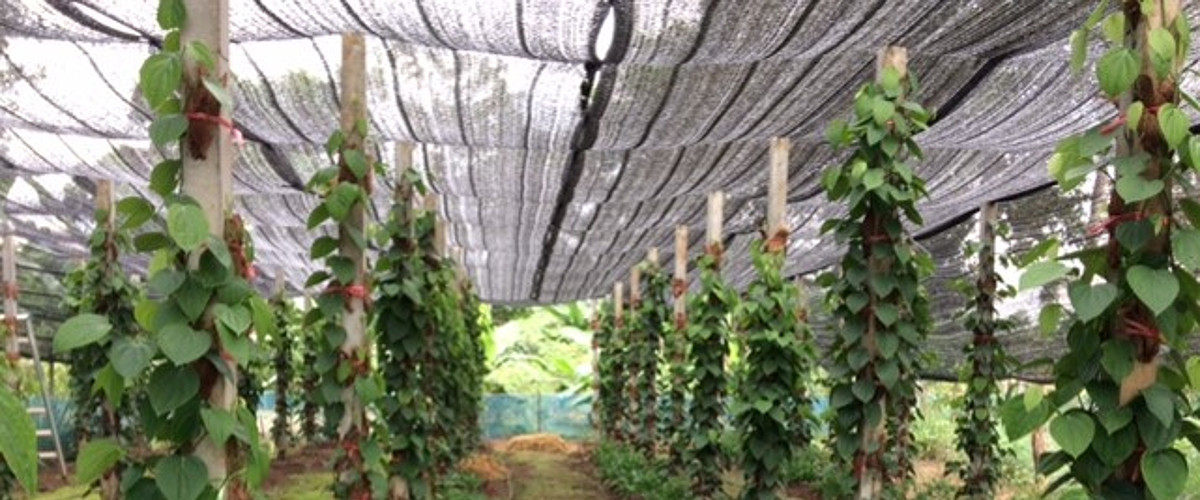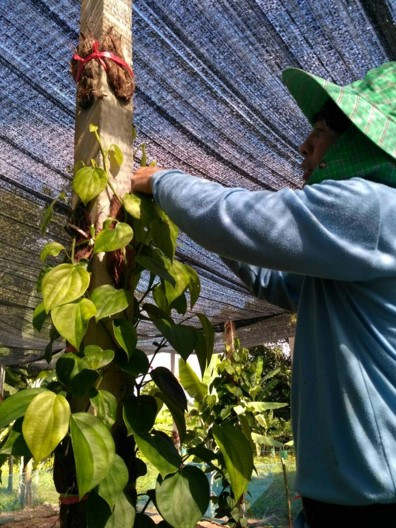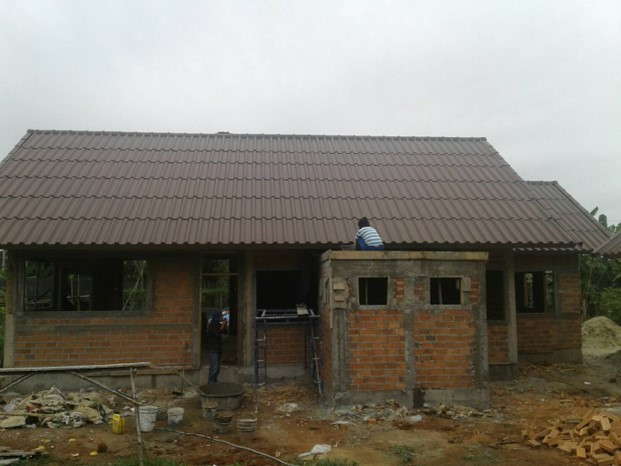 In a farm in the north of Thailand, a man bends as he plants peppers. However, Mr Sun is not just planting peppers; he is getting a fresh start in life as a free man.
In a farm in the north of Thailand, a man bends as he plants peppers. However, Mr Sun is not just planting peppers; he is getting a fresh start in life as a free man.
Originally from Myanmar, Sun is the first participant in the rehabilitation project of the Jesuit prison ministry in Thailand that seeks to help ex-prisoners re-integrate into society through organic farming.

“When we discussed it at that time with Mr Sun, we didn’t think about a pepper plantation at all,” shares Vilaiwan “Kep” Phokthavi, Director of Jesuit Foundation-Prison Ministry. “It was Mr Sun who sparked the idea, and we were excited to experiment and learn about this plant with him.”
In 2015, the Jesuits in Thailand had received a donation of two acres of land in Mae Tang District in Chiang Mai Province. A year later, Kep and her team began using the land for organic farming. They planted fruit and vegetables and, with the help of two ex-prisoners, started a passion fruit plantation.
Last February, Kep and her team visited ex-prisoners who had been released the year before. One of them was Sun.
“From our experience, we’ve learnt that it is not easy for many prisoners who have just been released to settle back home and have a normal life. Many have lost contact with their families, some have lost their minds, some want to have something to bring to their families when they go home, and some have nowhere to go. They don’t know what to do, how to start their lives,” says Kep.
Sun however had an idea.
“He said that he was very much interested in planting pepper. He thought it could help him make a living, and we thought we could accommodate him,” shares Kep.
With the help of Joy of Sharing, a Jesuit-run non-government organisation in Korea, the team was able to start a pepper plantation, and Sun moved in in July. He studied how to take care of the pepper plants the staff had planted, how to protect them from disease and insects and how to use natural fertilisers. After three months, Sun could grow pepper without help from the staff.
“He was doing very well,” says Kep. Since the accommodations are still being built, Sun had “only a little space where he set up a mosquito net and a plastic sheet to protect him from the rain at night, yet he was happy and enjoyed living with us.”

After about six months, Sun decided that he had learnt enough to grow pepper on his own. He returned to his daughter and the rest of his family last month, with his new farming skills and a dream for the future.
The project continues to grow. Construction on a centre to provide temporary accommodation for newly released prisoners began last year. The project broke ground on October 26, the day the much-loved King Rama IX was cremated, and his work towards a self-sufficient economy became the inspiration for the project.
Construction on Emmaus Centre is expected to be completed in May and while this is underway, the team is finding ways to support ex-prisoners who want to learn organic farming.
“Our organic farm is formed with a bit more experience after the two years since we started,” she says. “We are more aware of the difficulties of farmers, especially with organic farming. It is not easy to survive on agricultural products alone. So we research on how to make farming profitable.”
Many things still have to be put in place, such as a water system, electricity and a road, but the prison ministry team is focussed on its goal. The members envision Emmaus Centre as a haven where ex-prisoners can learn to transition from a life behind bars to a life of freedom, where they can talk, discern, work and hope to build their lives again.

